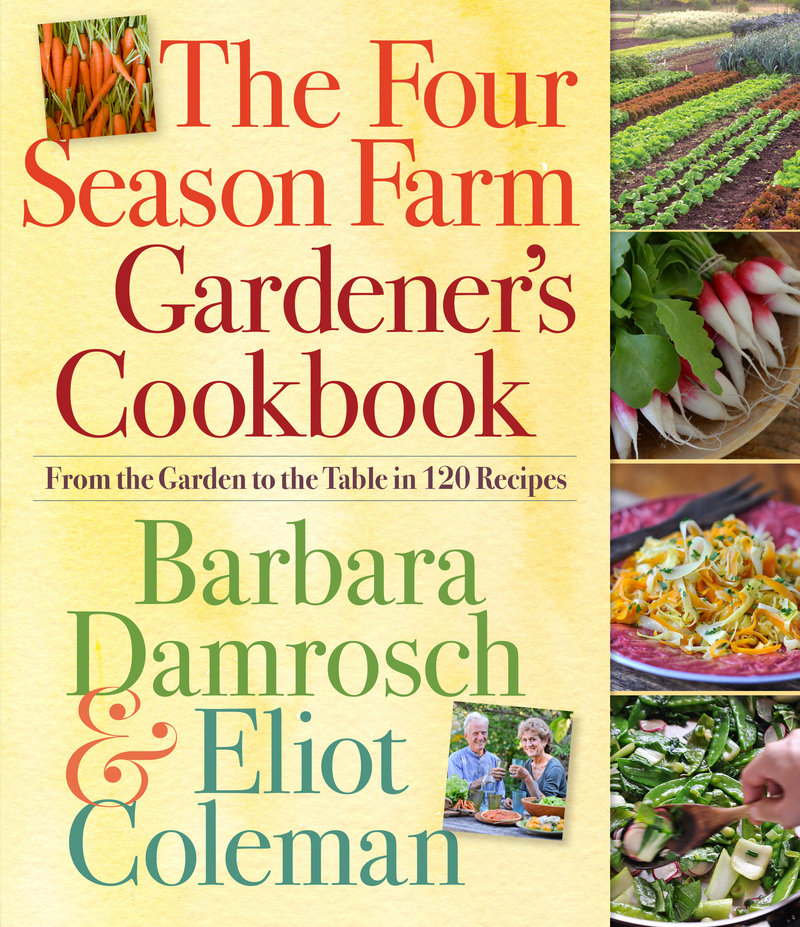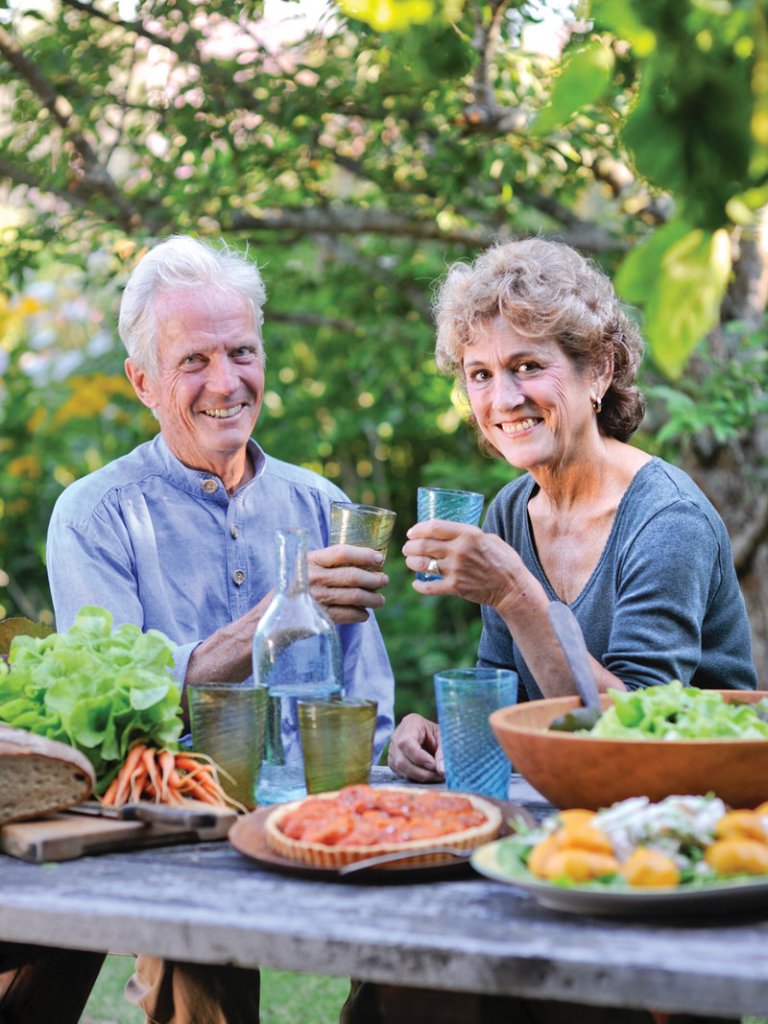Barbara Damrosch and Eliot Coleman own and manage Four Season Farm in Harborside, where they raise and sell fruits and vegetables commercially.
They also have a family garden, where they grow things for their own table.
In 2008, when the economy tanked and people were turning to gardening to stretch their budgets, their publisher contacted them about writing a book that taught beginning gardeners how to grow their own food while offering some easy ways to cook it. What they thought would be a one-year project took four.
Now that “The Four Season Farm Gardener’s Cookbook” (Workman Publishing, 486 pages, $22.95) is out, readers can learn how to prepare their meals from seed to the plate. We recently talked to Damrosch about the book.
Q: How did you come up with the idea of doing a book about how to grow your own food, and once you have grown it, how to cook it?
A: Quite a few books have been written like that, and I have a lot of older ones on the shelf, so it is not that unusual. My publisher thought it would be a good idea. They have wanted me to do a cookbook for 20 years. We thought, with me and Eliot, that would be a great one-year project aimed at the beginning gardener and to get people into the garden. It took us four years, and it turned into a 500-page book (that’s) a little more thorough and more difficult to write because it was a collaboration. But we are happy with the way it turned out, and people seem to like it.
Q: In the second edition of your “Garden Primer” (book) in 2008, you shifted to all organic. Have your growing methods evolved at all since then?
A: This is a lot different. Since it is a collaboration between me and Eliot, it relies on a lot of different systems that Eliot has been developing since 1969. Thirty-inch-wide beds are simply regulation here in this garden, while I had beds of various sizes. I did things then that we don’t do anymore. For example, I was much more a fan of raised beds then.
The first “Garden Primer” was almost all organic, but I put chemical fertilizers in there to be more inclusive. But I really was an organic gardener all along. The update expanded and updated the different species that were recommended, because species and companies change.
Q: You and Eliot run a commercial farm. You write a weekly gardening column for the Washington Post. How do you find time to write books?
A: By not sleeping. It was almost impossible, and I don’t know how I managed to do it. Combining writing with farming is hard enough, even just writing the column. Farming is an occupation that takes a lot out of you, and you are tired when you come in, and that’s when I do a lot of my writing. Of course, we do now have a farm crew that can take over when Eliot and I have to do other things.
Q: The new home garden boom started with the downturn of the economy in 2008.
A: That is when we got the call to write this book. People were down on their luck, and a lot of people started gardening. Even though the economy is supposed to be picking up, the average person still has a lot of hardship, and you never know what is happening next, so I still see a lot of interest in gardening.
Maybe it is a trickle-down effect from the slow food, real food movements and the awareness that our standard American food supply is not the healthiest. People realize that a lot of the stuff in the supermarket is not good for you.
Q: So you think the trend for home gardening will continue when the economy gets better?
A: You think it gets better? It has been a long time since things really were good. You have to go back to the ’50s to find any true prosperity of any depth in this country that goes down to the middle class.
Gardening goes in waves, and even after each wave goes, it leaves people with skills they didn’t have before that they can pass on to their kids: Knowing the names of certain kinds of vegetables and how to cook them.
And if people did start gardening for economic reasons and things get better for them, maybe they will keep on (gardening) because they just love being out there.
Q: How long have you been using EMT electrical conduit for your trellises? A reader emailed me the idea two years ago, and I tried it last year for the Sugar Snaps, and it is just great.
A: Eliot has really embraced it, using it for everything.
It is sort of like greenhouse pipe, and he got a pipe bender from a guy named Loy (Loy Robinson at Lost Creek Greenhouse Systems in Texas), and Johnny’s Selected Seeds sells one too. So we use it for small tunnels and for trellises for growing things like tomatoes and peas. It is really our favorite farm Tinker Toy, and you can get it at Home Depot and it’s really cheap.
The White House garden has the quick hoops that Eliot kind of pioneered, and when television showed them covering those hoops with Remay (floating row cover), we were jumping up and down with excitement.
Q: I’m not much of a cook, but the recipes seem quite easy and fairly quick. Was that the intent?
A: That was the idea. In an earlier question, you asked how I ever manage my time. I love to cook, but I only have so much time, so I want to make it simple. The old way was to open a can of cream mushroom soup as a substitute for making a sauce, but we are really fussy about not using processed food.
The other thing is that I tried to come up with recipes that I can make at any time of year with what we have in the garden. This is just the way that I cook, using different vegetables in a quiche or stir fry, and it is the same with a custard fruit dessert.
Q: Is there anything you would like to add that we haven’t covered?
A: I hope that people will pick up on our love for gardening and cooking and eating real food. I don’t want this book to lecture that you should do this or eat that. We love to do this, and do manage to do this even though we are incredibly busy.
And everyone was is incredibly busy, even if they are at home.
But nothing is more important than what you put in your body, and what is more important than sitting around the table with our family?
One thing I want people to take from this book is how much fun we are having doing all of it.
Tom Atwell is a freelance writer living in Cape Elizabeth. He can be contacted at 767-2297 or at:
tomatwell@me.com
Send questions/comments to the editors.



